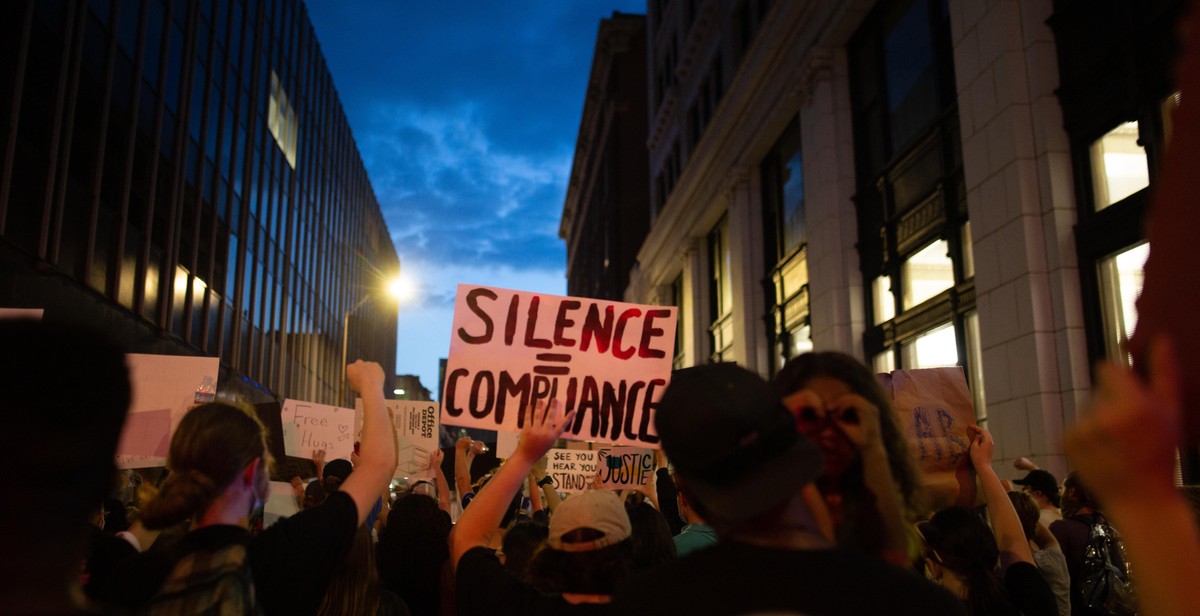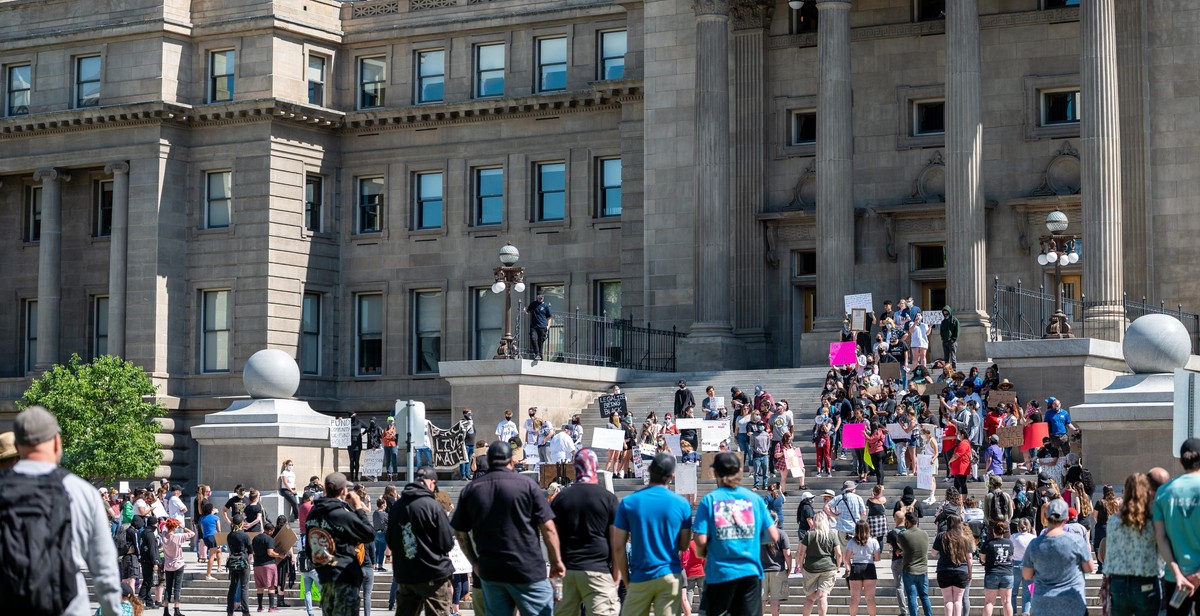How to Engage in Civil Political Discourse: Introduction
Political discourse is a critical component of any democracy, but it can be challenging to navigate. In recent years, political polarization has intensified, and people are increasingly finding it difficult to engage in civil political discourse. However, it is crucial to engage in respectful and constructive political conversations to promote understanding and progress.
Defining Civil Political Discourse
Civil political discourse refers to the exchange of ideas and opinions in a respectful and constructive manner. It involves listening to others, expressing one’s views without attacking others, and acknowledging different perspectives. Civil political discourse is essential for democracy as it allows individuals to engage in meaningful conversations, make informed decisions, and hold leaders accountable.
Unfortunately, civil political discourse has become increasingly rare in recent years due to political polarization, social media, and other factors. People are more likely to engage in name-calling, personal attacks, and other negative behaviors instead of having constructive conversations.
However, it is possible to engage in civil political discourse by following some simple guidelines. In this article, we will explore some strategies for engaging in respectful and constructive political conversations.

Why is Civil Political Discourse Important?
Civil political discourse is essential for a healthy democracy. It is a way for people with different opinions and beliefs to engage in meaningful conversations and exchange ideas without resorting to insults or personal attacks. Here are some reasons why civil political discourse is important:
Fosters Mutual Respect
Civil political discourse fosters mutual respect among individuals with different political beliefs. When people engage in respectful conversations, they are more likely to listen to each other’s opinions and understand their perspectives. This mutual respect creates a positive environment where people can disagree without being disagreeable.
Promotes Understanding
Civil political discourse promotes understanding of different viewpoints. When people engage in civil conversations, they are more likely to learn from each other and gain a deeper understanding of different perspectives. This understanding can lead to more informed decision-making and better policy outcomes.
Encourages Collaboration
Civil political discourse encourages collaboration between individuals with different political beliefs. When people engage in respectful conversations, they are more likely to find common ground and work together to find solutions to problems. This collaboration can lead to more effective policies that benefit everyone.
In conclusion, civil political discourse is essential for a healthy democracy. It fosters mutual respect, promotes understanding, and encourages collaboration. By engaging in civil political discourse, we can create a more inclusive and productive political environment where everyone’s voice is heard and respected.

Tips for Engaging in Civil Political Discourse
Engaging in civil political discourse is a critical component of a healthy democracy. It is an opportunity to share ideas, challenge assumptions, and find common ground. However, political discussions can quickly devolve into personal attacks, name-calling, and hostility. Here are some tips for engaging in civil political discourse:
Listen to Understand
When engaging in political discussions, it is essential to listen to understand, not just to respond. Listening allows you to gain a better perspective on the issue and the other person’s position. It also shows respect for the other person’s opinion and can lead to a more productive conversation.
Avoid Personal Attacks
Personal attacks, name-calling, and insults have no place in civil political discourse. They are counterproductive and can quickly escalate the conversation into a hostile exchange. Instead, focus on the issues and ideas being discussed.
Stay Focused on the Issue
It is easy to get sidetracked in political discussions, especially when emotions are involved. Try to stay focused on the issue at hand and avoid bringing up unrelated topics or personal anecdotes.
Be Open to Other Perspectives
Being open to other perspectives is critical in civil political discourse. It allows for a more comprehensive understanding of the issue and can lead to finding common ground. Keep an open mind and be willing to consider other viewpoints.
Use Empathy
Empathy is the ability to understand and share the feelings of another person. It is a powerful tool in civil political discourse. By putting yourself in the other person’s shoes, you can better understand their perspective and find common ground.
Acknowledge Common Ground
Even if you disagree with someone, it is essential to acknowledge common ground. Finding shared values or goals can help to build a more productive conversation and lead to finding solutions.
Stay Calm and Respectful
Political discussions can be emotional and intense, but it is crucial to remain calm and respectful. Avoid raising your voice, interrupting, or using aggressive body language. Instead, take a deep breath and respond thoughtfully.
Use Facts and Evidence
Using facts and evidence to support your position is essential in civil political discourse. It shows that you have done your research and can help to persuade others to your point of view.
Avoid Logical Fallacies
Logical fallacies are errors in reasoning that can undermine a political discussion. Avoid using fallacies such as ad hominem attacks, strawman arguments, or false dichotomies. Instead, focus on using sound reasoning to support your position.

The Role of Social Media in Civil Political Discourse
Social media has revolutionized the way people communicate, especially in the political arena. It has given a platform to individuals to express their opinions and engage in discussions with people from all over the world. However, the impact of social media on civil political discourse is a mixed bag of good, bad, and ugly.
The Good
One of the positive aspects of social media is that it has democratized the political conversation. It has given a voice to people who were previously marginalized and excluded from the conversation. Social media platforms like Twitter and Facebook have enabled people to connect with like-minded individuals and discuss political issues that are important to them.
Moreover, social media has also made it easier for people to access a wide range of information and news sources. People can now stay informed about political developments from around the world in real-time. This has made it easier for people to engage in informed discussions about political issues.
The Bad
However, the impact of social media on civil political discourse is not all positive. One of the negative aspects of social media is the echo chamber effect. Social media algorithms tend to show people content that aligns with their existing beliefs and opinions. This means that people are less likely to be exposed to diverse perspectives and opinions. This can lead to a polarized political discourse where people are less willing to engage in civil discussions with those who hold different views.
Moreover, social media has also made it easier for people to spread misinformation and fake news. This can lead to a situation where people are not basing their political opinions on facts but on rumors and conspiracy theories. This can be particularly damaging in the context of civil political discourse as it can lead to a breakdown in trust between individuals and institutions.
The Ugly
The impact of social media on civil political discourse can also be downright ugly. Social media platforms have become breeding grounds for hate speech and harassment. People who express unpopular opinions or hold different views are often subjected to abuse and trolling. This can be particularly damaging for individuals who are already marginalized or excluded from the political conversation.
Moreover, social media has also been used to spread propaganda and disinformation by foreign actors. This can undermine the integrity of democratic institutions and lead to a breakdown in civil political discourse.
| The Good | The Bad | The Ugly |
|---|---|---|
| Democratizes political conversation | Echo chamber effect | Hate speech and harassment |
| Enables access to diverse information sources | Spread of misinformation and fake news | Propaganda and disinformation |
Overall, the impact of social media on civil political discourse is a mixed bag. While it has democratized the political conversation and made it easier for people to access information, it has also led to a polarized discourse and the spread of misinformation. Moreover, social media platforms have become breeding grounds for hate speech and harassment. It is important for individuals to be aware of these issues and to engage in civil political discourse that is based on facts and respectful dialogue.

Conclusion
Engaging in civil political discourse is critical for the health of our democracy. It is only through respectful and constructive conversations that we can come to understand and appreciate different perspectives, and ultimately make informed decisions that benefit everyone.
As we have seen, there are several key strategies that can help us engage in civil political discourse. These include active listening, avoiding personal attacks, staying focused on the issues, and acknowledging common ground. By practicing these strategies, we can create a culture of civility and respect in our political conversations.
It is also important to recognize that civil political discourse is not always easy. We may encounter individuals who are unwilling to engage in respectful conversations, or who hold views that we find deeply problematic. In these situations, it may be necessary to disengage or seek out alternative forms of dialogue.
Ultimately, the importance of civil political discourse cannot be overstated. It is through our conversations and debates that we shape the future of our communities and our nation. By embracing the principles of civility and respect, we can ensure that our political discourse remains productive, meaningful, and grounded in the values of democracy.
